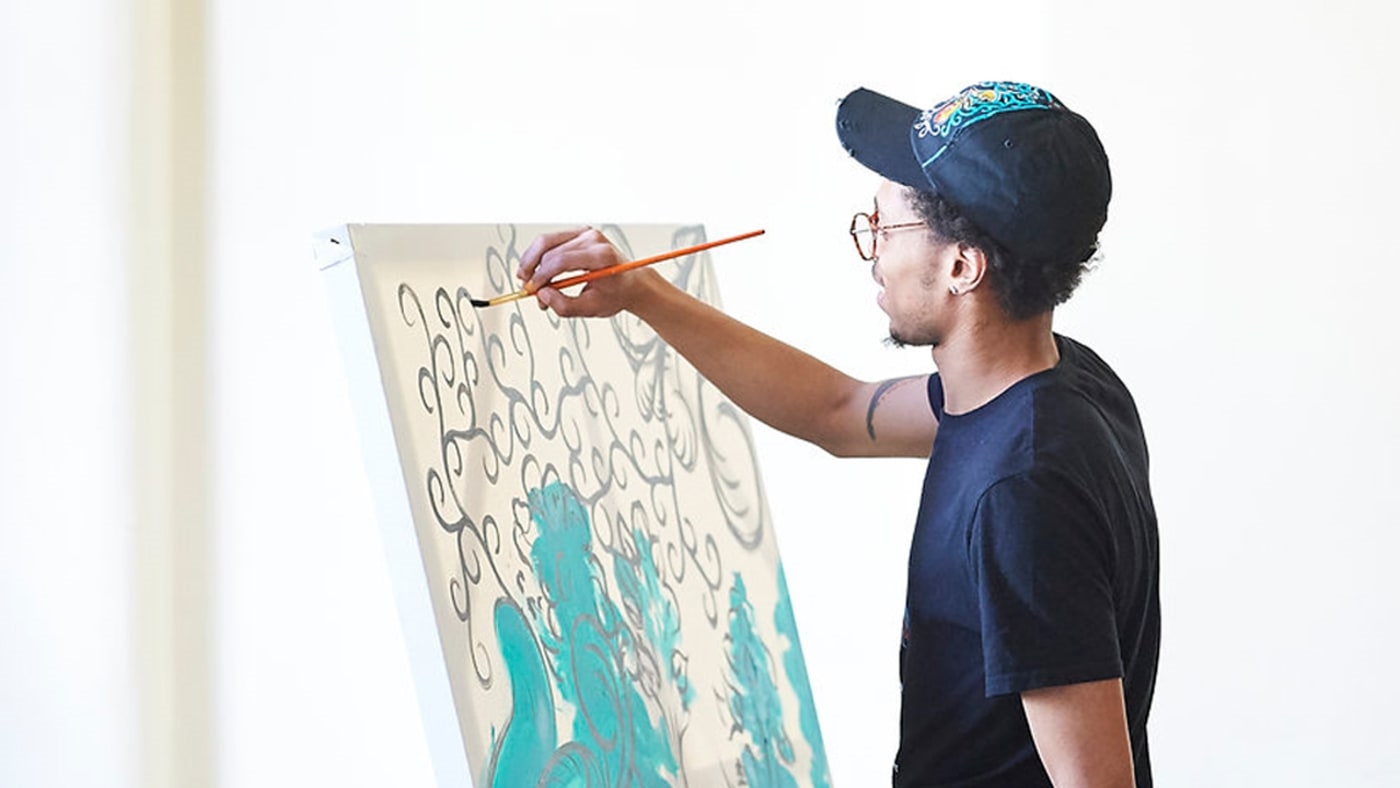How this startup is using time banking to deliver social purpose
By the time Karla Ballard got up to address a gathering of Fortune 500 executives in April just outside San Francisco, she’d been pitching “time banking” for 17 years. She’s a magnetic and passionate advocate for an alternative currency that allows people to earn credits for serving their community and spending them later on goods and services.
Imagine helping a neighbor move for five hours and, in exchange, you get an hour of legal consultation next week, then next month you cash in for two hours of personal training and two hours of dog sitting while you’re at the gym. Ballard’s presentations had always gotten a rousing ovation. Still, over the years, she had found herself chasing the dream of scaling time banking mostly on her own with her small team of true believers.
This time would be different. Ballard presented how time banking, now embodied in her startup called Ying, had been “Venmo-ized,” turned into a mobile app that effortlessly allows users to earn and spend credits. Within minutes, Ballard was swarmed.
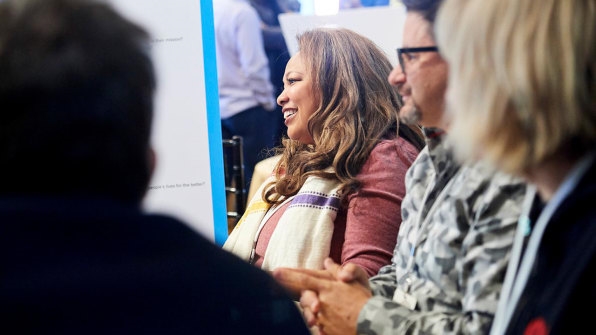
Nick Drake, T-Mobile’s EVP of Marketing wanted to work together on technology development. Michael Roberts, Bank of America’s CMO approached her, eager discuss how the banking giant and the tin startup might collaborate. By the time the day wrapped, Ballard got offers for partnership or investment from executives at Deloitte, Nextdoor and Lowe’s. A month later, Ying finally has the kind of momentum Ballard’s been dreaming about since 2001.
Though Ballard seemed blown away by the excitement she’d generated, the founder of the company that hosted the gathering, Peter Sims wasn’t surprised. He says a fundamental power balance is shifting and big companies now need access to fast-moving entrepreneurs as much, if not more, than entrepreneurs need them.
“I hear people in big companies across sectors every day complaining about how they’re getting eaten alive by startups,” says Sims, the CEO of Parliament, a semi-secret society of “black sheep” innovators, investors, academics, and outlying creatives. “They know they need to act much more entrepreneurially but that’s extremely difficult from within their four corporate walls. That’s why they come here.”
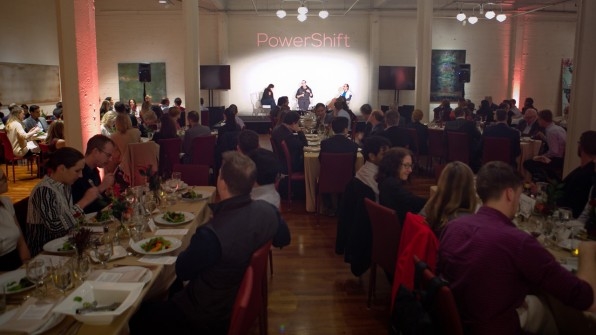
The struggles of companies that once relied on scale to control brand awareness, shelf space, and supply chains are intensifying as these tools become available to small players who can hack the system more quickly and cheaply. Big food brands like Campbell Soup, General Mills, and Hershey are struggling to keep up with thousands of nimble food startups popping up everywhere and demonstrating a better understanding of customer tastes.
As a result, the consumer staples sector is down 13% and having its worst year in a decade. Analysts say that thanks to challenges from brands that once would have barely registered on corporate radars–like La Croix, Dollar Shave Club, and Seventh Generation–stalwarts like Clorox, Procter & Gamble, and Colgate-Palmolive are each down around 20% this year.
The obvious response has been for struggling conglomerates to spend billions rolling up nimble startups so they can own their consumers and, more importantly, learn from their entrepreneurial ways. Despite years of running this strategy, however, the problem is only intensifying.
“With acquisitions, the big company has usually been looking at the little company for years,” Astro Teller, the head of X (Alphabet’s “moonshot factory”) and hedge fund management firm Cerebellum Capital, and one of Parliament’s self-proclaimed “black sheep” told me. “They could have bought it for a tiny fraction of the price. But the way the culture’s set up, the decision makers would rather spend 10 times the money and take less personal risk.” It’s no wonder that as these risk-embracing entrepreneurs get absorbed into the risk-averse conglomerates, they begin to lose the edge that made the acquisition attractive to begin with.
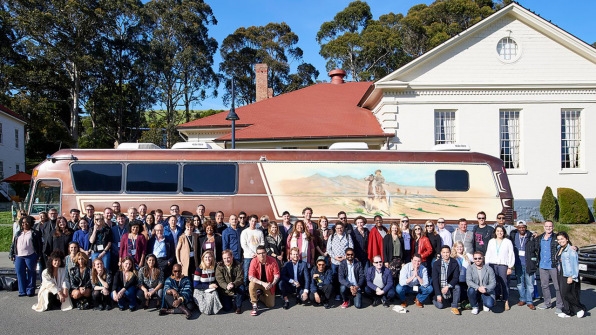
So when Karla Ballard pitched Ying, she was facing a room of executives who were acutely aware of an industry-wide crisis and were hungry to find ways to work directly with entrepreneurs beyond the usual paradigm of acquire, scale up, and standardize. Through Ying, these companies can explore new currency models, engage in low-risk mobile experiments, gain access to entirely new communities of users and collaborate with each other. None expects an investment in Ying to register on their corporate earnings any time soon. Instead, in co-conspiring, these partners hope to bring back invaluable insights they can’t uncover on their own.
“Symbiosis between entrepreneurs and big companies is the proven way to take advantage of the scale, assets, and distribution that big companies have, as well as the user-focused, creative problem-solving that entrepreneurs do so well,” contends Sims.
Ying isn’t the first attempt at co-conspiracy for many of the executives I met that day. Several experiments are now a year or two old and have moved to established practice. Though many have failed, the ones that have taken root have followed a simple, but perhaps unexpected formula: bring collaborators together who can all benefit if the experiment works and hold the group together with the glue of shared social purpose.
Nick Drake told me how the formula of collaboration around social purpose forever changed T-Mobile’s advertising strategy.
In 2017, Drake wanted to try something radical with his World Series advertising budget. He asked partners at Fox and Twitter to help him scale up the work of a small nonprofit, Team Rubicon, who engaged veteran volunteers in disaster response. They called it “Home Runs for Hurricane Relief”(HR4HR) because, for every home run hit and every tweet sent by fans, the mobile brand would donate money to Team Rubicon’s work.
Drake says the experiment, unlike traditional ad campaigns he’d run, kicked everyone into overdrive. Fox invented a new six-second in-game ad format to draw maximum attention without interrupting the action. Twitter designed and donated a hashtag emoji and partnered heavily on promotion. More than 500,000 fans stepped up to spread the word. HR4HR would prove to be T-Mobile’s most successful advertising campaign in its history.
Drake says that social purpose had commanded 1% of his budget. Next year it’ll be 30%. That’s tens of millions of dollars redirected based on a single collaborative experiment.
Ballard says it’s Ying’s social purpose that’s so far allowing the ecosystem of partners to hold together.
“Forty-seven percent of jobs we know today will be lost over the next two decades,” Ballard told me, citing a recent Pew study. “By creating an alternative to cash, time banking will be a fundamental part of addressing this transition. When you speak to companies in terms of a big social purpose, there’s a desire and willingness to do cross-pollination work.”
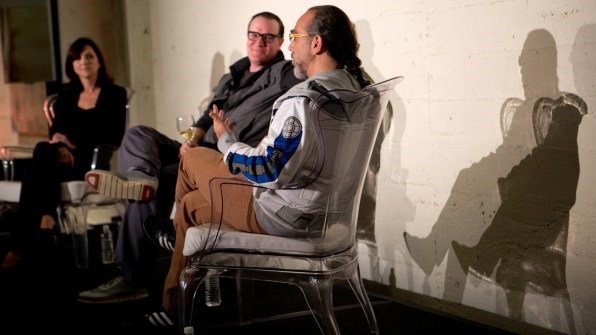
Teller, whose moonshot factory work on projects that aim for massive benefit to humanity like universal internet access, drone delivery, and carbon-free energy, says having an important mission gets people to put down their small day-to-day concerns and work together more generously, which ultimately creates breakthroughs.
“If you work on teleportation, and I ask for your help on my time machine, you’re going to be bringing in expertise I may not have. Five hours of your time may be worth 100 hours of mine and vice versa.”
Thus, getting out of our ruts, says Teller, and into contact with unlikely partners, is key to overcoming the challenges that seem intractable. To those executives who gathered at last month’s Parliament event, radical collaborations around experimentation and social purpose are becoming an important part of their playbooks. And for entrepreneurs like Ballard, who have spent decades drifting below their radar, this shift appears to be a golden opportunity.
(14)


